Our purpose was to become messengers of love everywhere we went. From that moment on, we resolved, the purpose of our lives, individually and as a couple, was to be helpful to others. Regardless of age or circumstance, we strove to help others identify, understand and let go of the fears that hid or obstructed the love they wanted to express and experience. In order to provide that help, we decided, we would need to see everyone as our brother and sister and with the intention to love people unconditionally. This was no easy task, and while we failed at times, we more often than not were able to experience that unconditional love for and between ourselves and to give it away.
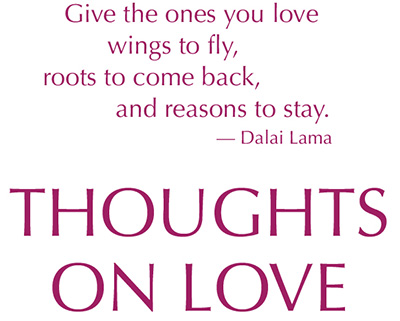 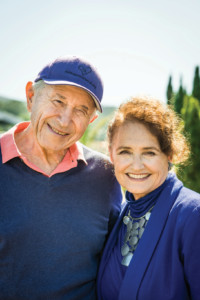 by Gerald Jampolsky, M.D. and Diane Cirincione-Jampolsky, Ph.D. | |
| The Beatles famously tutored us that you “can’t buy me love” and science tells us that you cannot really measure love, only aspects of it. We are told in countless ways that you do not find love, but love finds you. If you cannot buy real love and you cannot actually measure it, and you cannot seek and successfully find it, then what is it that we are talking about when we talk of love? We can speak of different kinds of love like that of a mother or father for a child, the child for the parents, the love of siblings or friends or country or other places and even things. But let’s look, for the moment, at romantic love and the love that brings us together in intimate relationship with each other. Intimacy has sometimes been translated as “in-to-me-see” — a desire and a request, a permission and a trust, to look inside oneself and one another to form an emotional union or bond. | |
| Science has attempted to dissect romantic love into aspects of itself. There are distinct, measurable, biochemical changes in our brain chemistry when we are in love, depending on the stage. We can experience any or all of the three stages of romantic love, which include passion, attraction and, if we are lucky, enduring love in long-term attachment. Some relationships are fleeting, yet indelible; others last for longer periods, but not for life. And then there is the relationship almost all of us dream of and aspire to. It holds all three stages: passion, attraction and long-term commitment. In the best of relationships the love is strong enough that when the thrill is gone, there remains a satisfying and deep friendship and companionship that supports the ebbing of personal strengths and the rise of vulnerabilities too numerous to ever predict. | |
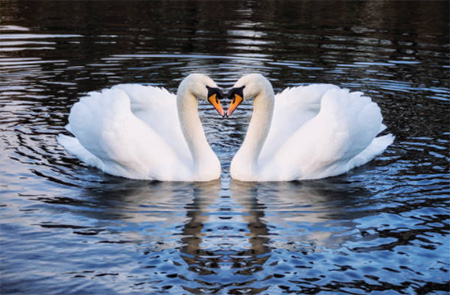 | |
| Changes in the status of love in our lives can be very challenging and have a definite effect on the state of our happiness. We want to hold on to the love of those we have, and yet that may not always be the wisest or healthiest of choices. The Dalai Lama inspires us to “give the ones you love wings to fly, roots to come back, and reasons to stay.” In long-term relationships we measure our happiness by the distance between where we are now and where our egos want us to be. That is, the only way we can know happiness is by the choice to love fully and to be in this present moment right here and right now. Any desire, need or imagining that we are elsewhere drives us away and often into the past or future, neither of which are accessible in the now. That does not mean we do not make changes in our lives or in our love relationships. But in order for us to do so, it helps to begin by being very present and very honest in each and every moment. | |
Interpretation Is EverythingPerhaps above and beyond the love relationships we have with others, the most important one, ultimately, is the one we have with our self. The relationship we have with our self is a deeply personal and dynamic one, albeit oftentimes unconscious. Do we know why we do what we do? Why do we say what we say? Why do we act and react in certain ways? If we hope to connect meaningfully with others, we surely need to first connect with ourselves. We are the most important love relationship we will ever have.If we do not like ourselves, we will undoubtedly not like many other people. If we hold anger within ourselves, more than likely we will find ourselves angry with others. If we find it difficult to trust others even when that lack of trust is unwarranted, there is surely a place within ourselves that we do not trust. If we are guilty about unresolved actions we have or have not taken in the past, we will definitely project out that guilt onto someone else in the present or in the future. And if we refuse to forgive and continue to have even one unhealed relationship from the past, it will surely show itself and interfere with our love along the way. Why is this so? | |
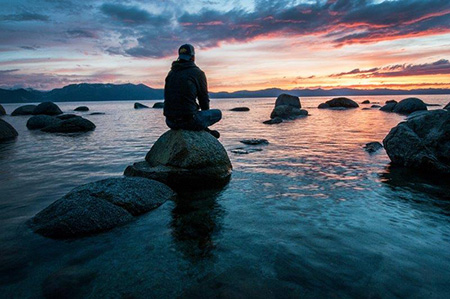 | |
| There is a fascinating and generally unconscious dynamic that rotates within each of our psyches each and every day. All our past experiences and relationships have formed our belief system, what we hold to be real and true. It is from our own unique belief systems that we look out onto the world and interpret what we see. What we are seeing, however, is not necessarily what is really there. How we actually see the world is filtered through a lens that projects our own beliefs onto a screen of life of sorts, and what we are seeing is what we think is valid and true. So what we “see” in the world outside of ourselves is actually only our perception, not necessarily a fact. This is why two or more people can see the exact same thing, but each experiences it in a slightly different way. What we perceive in turn reinforces our own belief system and so the cycle goes on and on. What changes this cycle is the courage to be willing to challenge our own belief system. This is a powerful way to be more successful in the interpersonal dynamics of love and relationships that challenge us in just about all parts of our lives. Love comes from respecting the fact that each and every individual — whether family, friend or foe — has his or her own, unique belief system, one that person also thinks is real and true. It takes stepping outside our own comfort zone so we can see someone else’s to create a path to being able to love one another, even if we disagree or remain very different from each other. | |
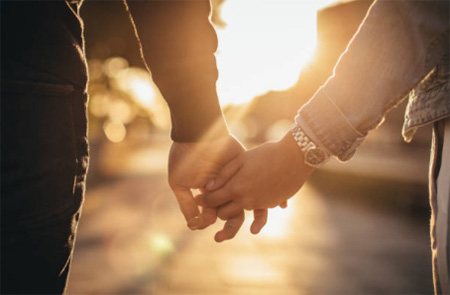 | |
Personal PerspectiveWe have been together nearly 40 years now, working and writing and traveling in over 60 countries on six continents. Being together 95 percent of the time has brought its challenges and rewards. Needless to say, we have been stretched in myriad ways requiring that we adapt and compromise, forgive ourselves and each other and, ultimately, grow beyond the littleness of our own ego selves. In choosing to do that, we have been able to give and receive love in the most unexpected and exquisite ways. We have embraced so very many cultures and customs that were originally foreign to the experiences that have made up our own individual belief systems. We have been embraced in return with acceptance and love.When we were thinking about getting married decades ago, we devoted a lot of thought and contemplation to understanding the purpose of our relationship and what our love could be. We decided not only that the depth of love we had for one another could be shared between us, but that each of us could be like a screen of sorts, where our love from one to the other would filter through us and out to all others. | |
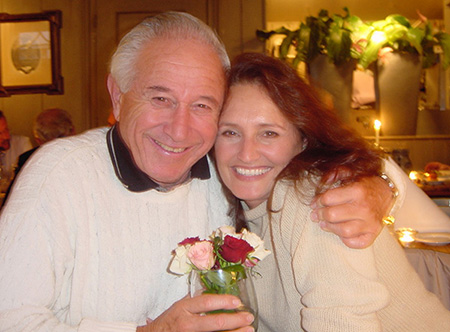 | |
| Our purpose was to become messengers of love everywhere we went. From that moment on, we resolved, the purpose of our lives, individually and as a couple, was to be helpful to others. Regardless of age or circumstance, we strove to help others identify, understand and let go of the fears that hid or obstructed the love they wanted to express and experience. In order to provide that help, we decided, we would need to see everyone as our brother and sister and with the intention to love people unconditionally. This was no easy task, and while we failed at times, we more often than not were able to experience that unconditional love for and between ourselves and to give it away.
It is noteworthy that when the purpose for our love became clear, that insight opened the door further to a spiritual life wherein our mind, body and spirit connection blossomed. We began to see our relationship with each other and with others in a whole new way. We chose to not see anyone as an enemy.
Certainly, there is enough love in the world to go around if our hearts are open to sharing it.
| |


No comments:
Post a Comment